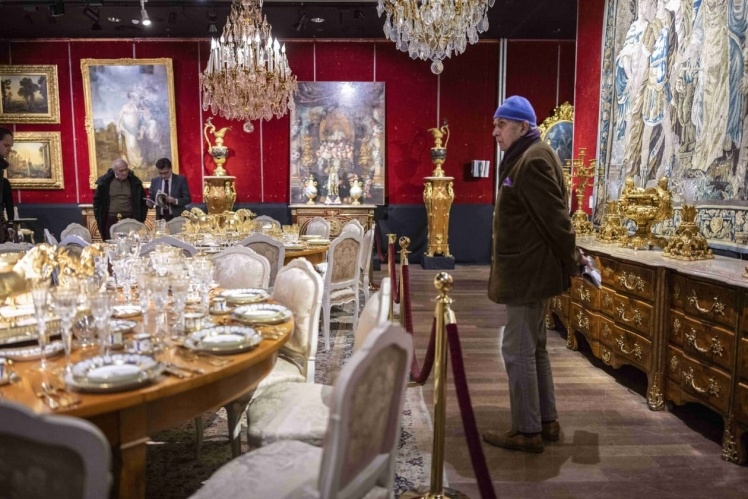After the fall of the regime of former Syrian President Bashar al-Assad, a "hunt" began for the wealth of his family, which they had accumulated over decades. The US State Department believes that the value of businesses and assets associated with the Assads could reach as much as $12 billion or as little as $1 billion. This is data as of 2022.
This is reported by The Wall Street Journal (WSJ).
The exact size of the Assad familyʼs wealth is unknown, as is who controls which assets. In recent years, Bashar al-Assadʼs relatives have made a number of international purchases, including luxury real estate in Russia, boutique hotels in Vienna, and a private jet in Dubai.
Often, the family received this money through state monopolies and drug trafficking, especially amphetamine, and then partially reinvested it in jurisdictions inaccessible to international law (there are no sanctions against the Assads there).
“There will be a hunt for the regime’s assets internationally. They had plenty of time before the revolution to launder money. They always had a ʼPlan B’, and now they are well equipped to be expelled,” said Andrew Tabler, a former White House official who sought assets belonging to Assad family members while working on the US sanctions.
However, locating and freezing the assets is likely to be difficult. The United States has waged a long-running sanctions campaign against the Assad regime, which has forced it to hide its wealth outside the West and through tax havens.
Legal teams have managed to freeze assets linked to the Assads’ fortunes — a Paris court in 2019 froze $95 million in assets controlled by Bashar Assad’s uncle, Rifaat Assad (responsible for a brutal crackdown on the opposition in 1982). The court ruled that Rifaat obtained the assets by laundering embezzled state money.
Rifaat Assadʼs confiscated furniture was put up for auction in Paris.
Zuma Press
Doing the same with the Assadsʼ businesses and assets in tax havens like Dubai and Russia will be much more difficult than in France. Investigators would have to seek court orders to freeze the assets and then force their return.
The overthrow of the Assad regime in Syria
Active clashes between rebels and Syrian troops have been ongoing in Syria since November 27. The offensive was launched by the Syrian Revolutionary Forces in "response to months of continuous attacks on civilians" by the Assad regime in Aleppo province.
Already on December 1, the media reported that Assadʼs forces had lost control of Aleppo, for the first time since the beginning of the military conflict, which began more than ten years ago, and later also of the city of Hama, the fifth largest in the country.
On December 8, the Syrian opposition entered the Syrian capital — Damascus — and declared that it had overthrown the regime of President Bashar al-Assad. Russian propagandists say that Assad has fled to Moscow.
Syrian rebels have already begun forming a transitional government — it will be headed by Muhammad Bashir, who headed the "Salvation Government" — a political structure created in 2017 in territories controlled by the Syrian opposition, primarily in the province of Idlib.
The Russian Foreign Ministry announced that Bashar al-Assad had resigned as president of Syria and left the country, adding that he had given instructions to transfer power peacefully and had previously held talks with the parties to the conflict. Assad is now in Russia with his family and has been granted political asylum.
For more news and in-depth stories from Ukraine please follow us on X.
